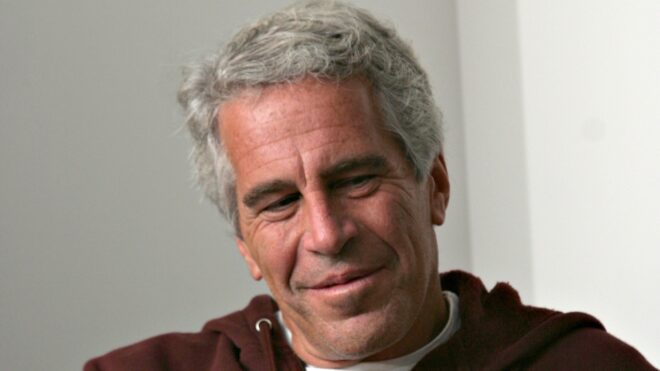Many special life moments have been put on hold due to COVID-19. Around the globe, birthdays, graduations, and wedding celebrations have all been disrupted. Some of those affected are disheartened by what's been taken from their achievements and milestones. For couples who are planning to tie the knot, they're simply looking forward to the future.
Coping with life separated from one another hasn't been easy. Families are wondering what the future may bring. What will happen when we can gather for these special moments again? A new report by leading wedding planning and registry resource The Knot looks at what the future of weddings will be like.
In some areas, returning to business as usual has slowly begun. This is leading couples to look at the ways they can make their wedding a comfortable, safe, and enjoyable experience for all parties involved. It's an important reminder that while the pandemic has put a halt to some of the things we've looked forward to, love is not canceled. Weddings moving forward may look a little different, but the love will be all the same.
Thousands of weddings around the globe have been impacted by COVID-19. Yet "to-be-weds" are taking it all in stride. Wedding planning and registry resource The Knot published a report detailing the new reality of weddings regarding health and safety measures, layouts and new event formats, and rethinking the guest experience.
The good news is that most weddings have been postponed, not canceled. Around the globe, 92% of couples have decided to postpone their weddings to later this year or 2021. The overwhelming desire is to keep things as closely to as they were planned as possible, with 94% of couples keeping their guest count put and 95% keeping their budget the same.
"To-be weds and wedding professionals are experiencing an unprecedented time as this pandemic has halted one of the most celebrated moments in a couple's life, but love is not canceled," said Kristen Maxwell Cooper, editor in chief of The Knot.
"It’s not a matter of if, but when events are permitted again, couples and guests will be more eager than ever to celebrate love and one of life's biggest moments together after long periods of isolation."
While guests and couples alike are excited to resume get-togethers, changes will have to be made to make guests feel that their health and safety are being taken into serious consideration.
One of the ways we may see that is in creative solutions to keep sanitizers on deck for all guests. This may look like personalized bottles or pre-wedding favor bags. Some venues may even luxe it up and serve tiny bottles of the solution on silver trays.
Some couples are even thinking of ways to incorporate masks and gloves into the day. In bridal and bridesmaid fashions, that may be the adoption of formal gloves as part of the wedding look. Other couples may give out masks that coordinate with their color scheme. Regardless, vendors will most likely be required to wear personal protective equipment, especially those who will directly serve guests.
Food and drinks are an increasingly important aspect of the day for many couples. The manner in which they are prepared and served will likely look different. Couples are more likely to go for plated meals instead of buffets. When using serve-it-yourself stations, couples might provide a larger number of smaller stations to keep guests spread out.
"The health and safety of guests is of utmost importance. Couples should communicate to guests the measures being put into place and emphasize that by following their guidelines, they're showing love and respect to them and others in attendance," said Emily Clarke, founder of Emily Clarke Events.
"Putting a personalized touch to these measures will go a long way in normalizing the incorporation into weddings and keeping the positive, fun spirit of a wedding intact. For instance, create personalized hand-sanitizing wipes in petite packages with guests' names on them so people can sanitize as soon as they sit down for dinner."
Couples and venues will also be eager to work together to find layouts and options that make social distancing a little bit easier. Couples who aren't deep into planning already are likely to look at open-air options that allow crowds to spread out. Others will look at ways to keep groupings of people smaller and more thought-out.
Where ceremonies are concerned, many couples may limit guest lists to make them more intimate than receptions. Shorter ceremonies with more standing options are also likely. Couples will likely stand further from their officiant and their bridal party.
Receiving lines will also look different. Although the practice has been done away with in some more modern setups, they'll receive a socially distant makeover. Gesture lines that are filled with winks and nods could become the norm.
Satellite dance floors and satellite bars will also help break up the room when it comes to receptions. This will allow guests to splinter off a little more. Many couples might take advantage of this to provide different guest experiences in different areas.
"Venues can anticipate an increased desire from couples to incorporate outdoor elements into their wedding celebrations, such as small, carefully placed lounge furniture vignettes among blooming gardens and ambient lighting displays," said Melanie McAfee, owner of Barr Mansion, Ballroom and Farmstand.
"Additionally, wedding venues that have more than one space dedicated to weddings — perhaps a tented outdoor site along with an indoor ballroom with an adjacent open-air terrace — may opt to leverage all the spaces on their grounds for one celebration, allowing couples and their guests to spread out more than normal."
Some couples are choosing to honor their original wedding date with a "minimony," where they get legally married with an intimate group or virtually, with a larger celebration planned down the line. Planners are helping couples with this by coordinating with vendors to provide them with smaller versions of their services, such as a short photo shoot or a mini-cake. It's a sweet way to honor your original wedding date and begin your life as married people on the planned timeline.
Event formats are also going to see a change. Many couples feel inclined to be more flexible when it comes to rescheduling. Some are switching the day of the week of their event. Of the 12% of couples doing so, 8% have switched to a Thursday, 40% have switched to a Friday, and 33% have switched to a Sunday. The decision is also dependent on vendor availability, with many couples trying to stay with their original choices.
Sequel weddings may also see a rise. Usually, sequel weddings are due to cultural or religious customs. Now, a sequel wedding can be a larger-scale second celebration (i.e., a wedding that's been postponed), following an event that is more intimate in nature.
Shift weddings are another possibility, which sees couples using their venue and vendors for a full day while having guests come in groups throughout the day, with time to clean and sanitize in between.
Other couples are looking into multiweddings, where all the different events throughout a wedding weekend are redesigned to accommodate guests in smaller groups without cutting down the guest list.
There are also some who are opting for microweddings, which have top-of-the-line elements for a very limited number of guests.
Couples will also make sure to have more digital options available. Some might livestream events to allow even more people to take part in the moment.
As weddings move forward, they will certainly be more unique and customized to a couple and their guests than ever before. "Pros will help couples curate intricate food and beverage moments, allowing these staple wedding reception elements to become part of the entertainment for guests," said Emily Elizabeth Gordon, owner of Em and E Events.
"You may see a string quartet perform during the soup and salad course, followed by a carefully interactive magic show during the main course, with an interactive dessert display to end the evening. The options for couples are endless if they get creative with their pros, and can also include caricature paintings for guests with different scenes from the wedding incorporated, or a local school marching band show for high school sweethearts."
"Wedding pros are seeing many of these changes come to fruition in real time and are quickly building creative solutions to address necessary adjustments for engaged couples' celebrations," said Bill Zaruka, president of Wedgewood Weddings.
"Pros are certainly tapping into the rise of weekday weddings and couples' willingness to be flexible when rescheduling, as well as leveraging streaming technology to ensure high-risk loved ones can join the festivities from afar. We're also thinking through new formats for events — like the 'shift wedding' — and how these new formats can work for each couple's unique wishes for their wedding day. Each and every dedicated wedding professional is constantly thinking about what the new reality of wedding celebrations holds for their couples and how they can make this moment in time incredibly treasured — even if it looks a bit different than their initial plans."
"What we do know is that couples, venues and wedding pros are all working together to assure that weddings can go on safely, while still maintaining the fun and beautiful environment couples have always dreamed of."




